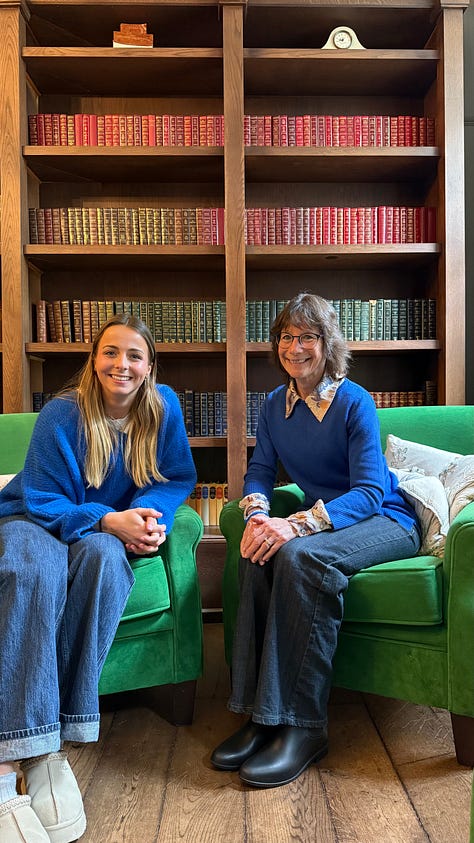“Social media? Nothing’s real.”
Ex-teacher and influencer Jemma Bella opens up about on the reality of living life online and her advice for teens today
British content creator Jemma Bella, making an impact online was never about strategy, polish or perfection. It started with a blog, written when she was navigating the challenges of long Covid and struggling to make her experience understood. What began as an outlet to explain her reality to her boyfriend and family quickly turned into a growing community of people who felt seen through her words.
“I never went on social media to share my entire life,” Jemma tells The Female Lead. “I still keep a lot of my personal stuff private, but I’ve chosen to share the majority of my experiences with chronic illness.” Jemma’s decision to show the sometimes messy, confusing, human side of recovery resonated with people in a way that filtered content never could.
From the classroom to content creation
Before she was a creator, 26-year old Jemma was a teacher. Her time in the classroom with teenagers gave her first-hand experience of how social media shapes young people’s self-esteem and aspirations. “It’s probably the most dominant thing in their lives,” Jemma says. “Their viewpoints and thought processes are so dependent on social media now. As a teacher you can only make a very small drop in the ocean.”
That realisation has made Jemma even more conscious of what she puts online. “I’ve always felt that I have a responsibility,” she says. “Even when I had very few followers, I felt responsible for the lives of the people who were reading my content.” She is deeply aware that her posts don’t exist in a vacuum – they can influence how young people see themselves, what they aspire to, and how they recover from their own struggles.
The power of honesty
Jemma’s strength lies in her refusal to present a glossy version of her life. She is candid about the realities of recovery from long Covid – the good days and the bad – and about the murky line between personal life and work online. “I don’t have a very good work-life balance,” she admits. “I like to work and be busy. I’ve had to set boundaries, like keeping my phone in a different room at night, but it’s still very blurred.”
That vulnerability is what makes Jemma’s content so compelling. She’s not selling a dream – she’s showing real life, complete with challenges and self-doubt. “There’s a huge misconception that if you have 100,000 followers, you’re living this glamorous life,” she says. “Honestly, it’s bullshit. It’s hard work. It’s creative work. And my life is far from perfect.”


The emotional weight of influence
As her health improved and she started sharing more about her recovery, Jemma felt the weight that comes with being part of an online community built around chronic illness. “There’s a lot of sensitivity around recovery, because everyone’s experience is so different,” she explains. “Posting that I’m well can feel insensitive to people who are still suffering. It’s a difficult balance.”
Related articles
Her answer has been to remain transparent and grounded in her own truth. “I can only share my life and my experiences,” she says. “It’s not the whole truth for everyone, but I try to be honest about what I’m going through.”
Advice for young creators
When asked what she wants every teenager to know, Jemma’s message is simple: don’t get lost in endless scrolling. “Create, don’t consume,” she says. “I limit what I take in online because I don’t want to constantly feel like I need to be doing what other people are doing. My focus is on creating.”



She also wants young people to remember that what they see online isn’t reality. “Everything you see [on social media] has something behind it – a thought, an edit, a filter. Nothing’s real,” she says. “The struggles you’re going through are valid, even if they don’t look like what you see on someone else’s page.”
Jemma built her platform and loyal followers by being real, and it’s that authenticity that has made her voice powerful. Her story is a reminder that the strongest connections come from honesty, not perfection.





